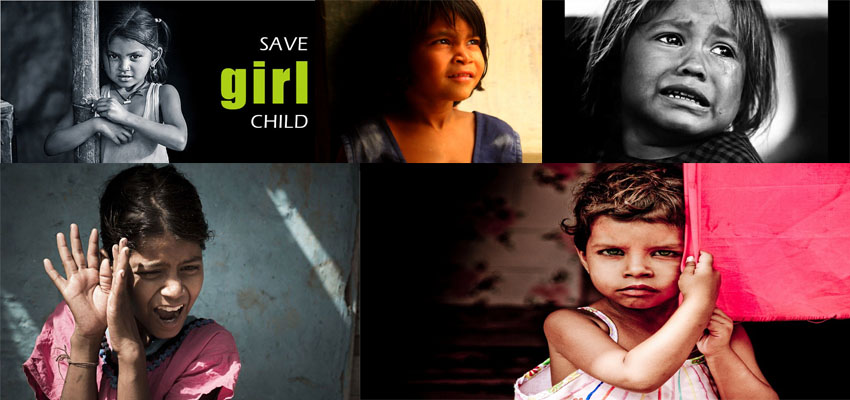
In many parts of India, the birth of a girl child is not welcomed. Right from her arrival, she faces discrimination, humiliation, and oppression at every stage of life. When it comes to healthcare, education and growth opportunities, she is neglected because of her gender. Some manage to survive and foster new paths to follow. Most, however, surrender hopelessly to the sad fate assigned to them.
In a country rife with gender inequalities and an underlying nature of patriarchy, girl children often find themselves at the short end of the stick. Discrimination against girls is rampant and due to the fear of abuse and exploitation, they are kept at home and not sent to school. Child marriage is yet another glaring issue due to which girls are forced to give up going to school at an early age.
The issue of girl child rights and protection in India is a very serious concern. Being home to more than one third of the 10 million child brides in the world, India has one of the highest numbers of girls forced into marriage before the legal age of 18. If one half of our society remain so vulnerable to violence and neglect, how will the country advance or progress? Not only are they unsafe at home where they are victims of stereotypical attitude, but also in learning environments. Ill-equipped schools that lack separate toilets for girls are one of the major deterrents for parents not willing to send their girls to study. The few who manage to attend school risk violence and abuse. According to India’s 2011 census, 53% households and 11% schools had no toilets. This lack of safety deprives young girls of an opportunity to educate themselves and better their lives.
We want to be part of a world where girls are celebrated. Where they are treated equally, with love and respect. What is urgently required in society today is a change of attitude. Girls must be given the same opportunities and protection as boys, and must be treated at par. A girl’s childhood can and must be preserved, cherished, nurtured and protected. Because she has the right to survive, develop, be protected and participate in decisions that impact her life.
Sarji Foundation fight for the girl child in India include:
- Education that helps create attitudinal shifts that emphasise the rights of a girl child
- Breaking myths and stereotypes around gender
- Ensuring State accountability to implement various schemes, policies, laws, constitutional guarantees and international commitments
- Encouraging community ownership in preventing violations faced by girls
- Demanding a healthy budget allocation for the girl child at state and central level
- Building women leaders from the community through sensitisation programmes that help them understand their rights and ensure it for girls and women like them.




